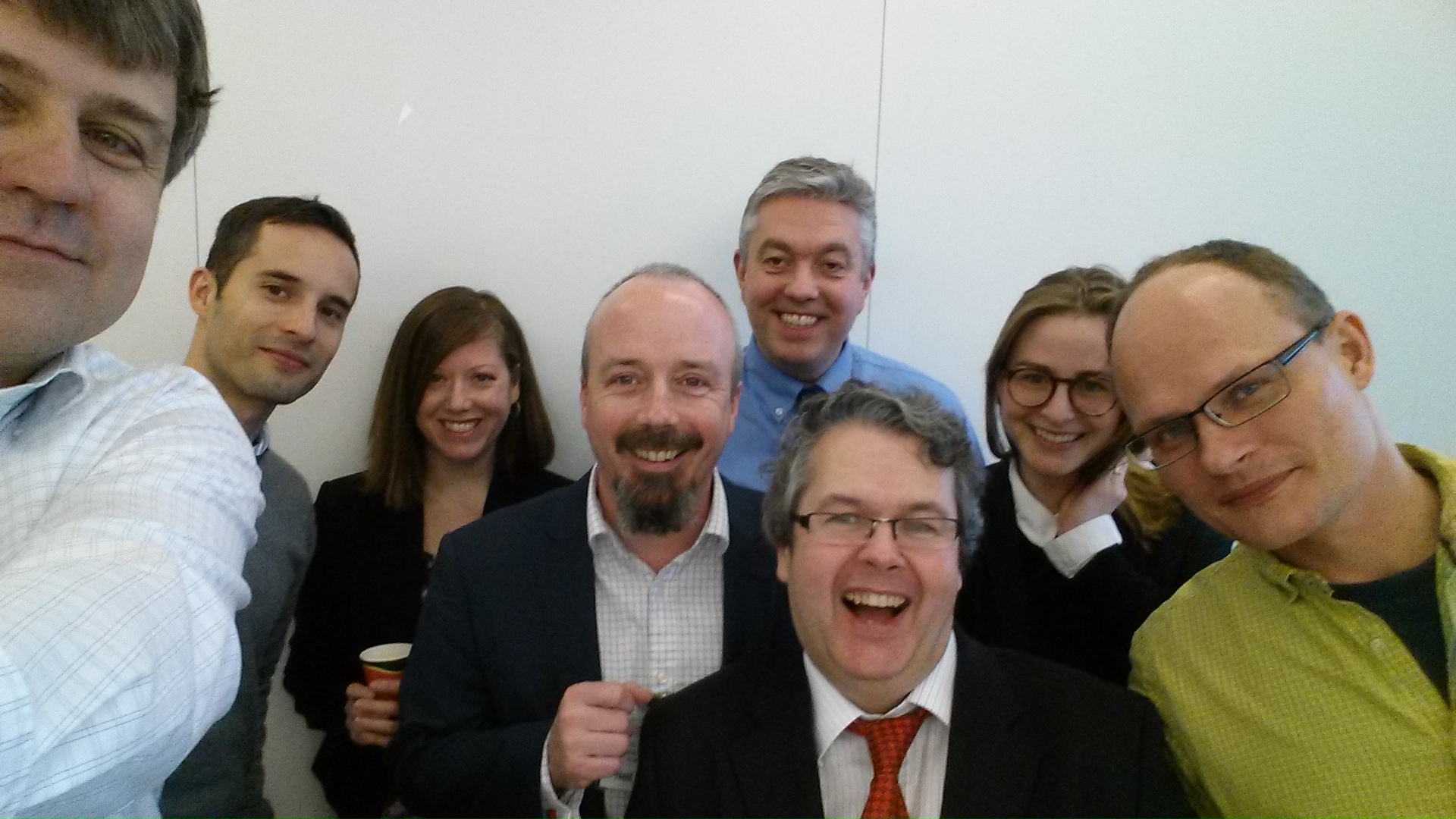Just when you thought it was safe to go back in the water….
It’s been nearly a year since the end of the project and we’ve not been idle. 4C outputs have been popping up all over the shop—we’re even on the curriculum in some places—and the curation costs exchange (curationexchange.org) is seeing an increasing number of visitors.
'Excellent' rating for 4C Project at final review
 The 4C Project received an 'EXCELLENT' rating, the highest achievement possible, at its final review which took place in Luxembourg on Tuesday 24th March.
The 4C Project received an 'EXCELLENT' rating, the highest achievement possible, at its final review which took place in Luxembourg on Tuesday 24th March.
The European Commission’s review panel especially praised the communications and engagement work the 4C team had undertaken and were surprised and impressed with the sheer number of opportunities the project had created to interact with a broad range of stakeholders. They also remarked on the excellence of the sustainability plan and the unusual amount of detail it included.
Assessing the Risk, Benefit, Impact and Value of Digital Curation
The 4C project submitted D4.4, its ‘Report on Risk, Benefit, Impact and Value’ deliverable to the European Commission this week.
“Risk can be defined as the ‘effect of uncertainty on objectives,’” explains lead author of the report José Borbinha of INESC-ID in Portugal. “With this in mind, and assuming that dealing with uncertainty is one of the important concerns of a digital curation stakeholder, the hypothesis that the body of knowledge on Risk Management can be valuable to the domain of digital curation is quite reasonable.”
The 4C project ends, the collaboration continues
The EU-funded “4C – Collaboration to Clarify the Costs of Curation” project draws to a close at the end of January and the project team has spent the last 24 months on engaging with stakeholders, discussing curation issues, collating tools and resources and elaborating State-of-the-Art models - all to provide a better understanding of costs and cost-related issues in digital curation.
“Communication and interaction has been at the heart of the 4C Project and we have tried really hard as a project to work together and with the community to reflect on and refine the outputs of the project as we go along,” explains Project Co-ordinator Neil Grindley of Jisc, in his closing blogpost.
Understanding and comparing digital curation costs to support smarter investments
“To date there have been very few opportunities and, due to trust issues, little willingness for digital curation practitioners to exchange information relating to the cost of curation. The Curation Costs Exchange (CCEx) platform allows users to upload their curation costs and compare them with those of others in a secure, controlled fashion,” explains Alex Thirifays of the Danish National Archives who collated the report.
The report, along with the CCEx and the Cost Comparison Tool make up the deliverable (D3.3—Curation Costs Exchange Framework) and address some of these issues of trust and unwillingness, and explains how organisations can use the CCEx to understand and compare digital curation costs to support smarter investments.
More Articles...
- Defining a Roadmap for Economically Efficient Digital Curation
- Curation Costs Exchange beta release - supporting smarter investments by comparing digital curation costs
- Investing in Curation: A Shared Path to Sustainability
- ‘Investing in Opportunity: Policy Practice and Planning for a Sustainable Digital Future’ - Conference registration now open
















